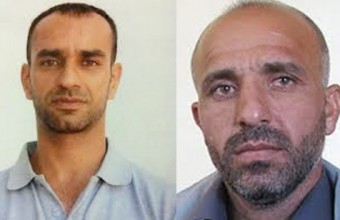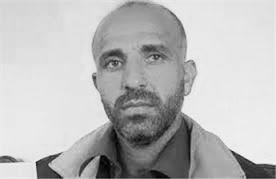Tag: Prisoner Hunger Strike
-
Wife of kidnapped Palestinian engineer Dirar Abu Sisi holds Gaza press conference
27th August 2013 | International Solidarity Movement, Gaza Team | Gaza, Occupied Palestine Yesterday Veronika Abu Sisi, the wife of Palestinian electrical engineer Dirar Abu Sisi, spoke with media and supporters in the Gaza Strip to denounce the international kidnapping, summary detention and solitary confinement of her husband. “We won’t give up until Dirar Abu Sisi…
-
An appeal to the international community to save the lives of Palestinian administrative detainees on hunger strike, al-Sharawna and al-Eissawi
20 December 2012 | Palestinian Centre for Human Rights The Palestinian Centre for Human Rights (PCHR) expresses extreme concern over the fate of Ayman al-Sharawna and Samer al-Eissawi, who have been on hunger strike in Israeli jails. PCHR holds the Israeli Occupation Forces accountable for these lives, and calls upon the international community to exert…
-
Palestinian hunger strikers insist on gaining their freedom even if the cost is their lives
5 December 2012 | Addameer Addameer Prisoner Support and Human Rights Association expresses its deep concern for the health and lives of five Palestinian political prisoners that are on hunger strike to protest their unjust detention in Israeli Occupation’s prisons. The five current hunger strikers are: Ayman Sharawna (158 days), Samer Al-Issawi (127 days), Oday…



